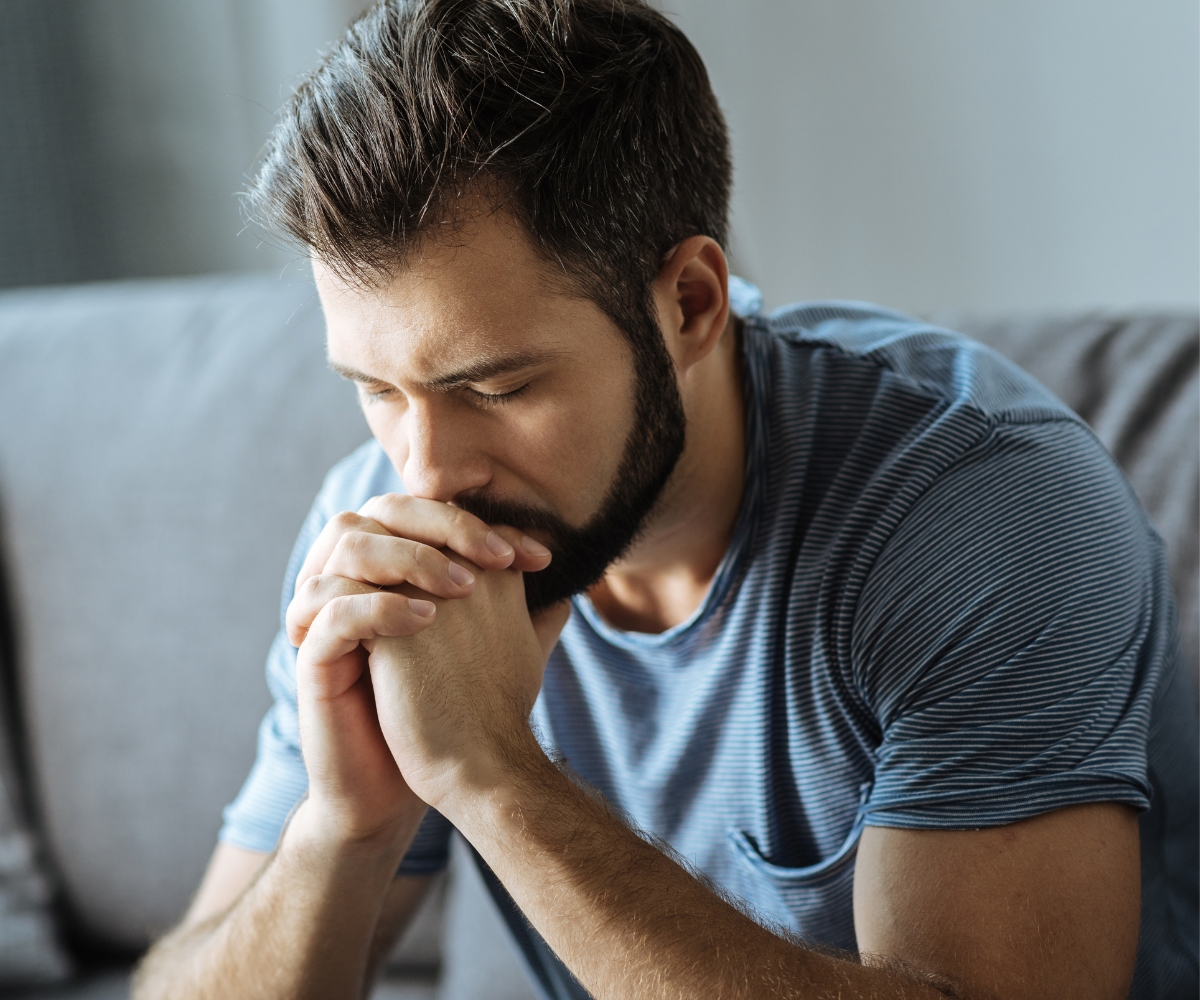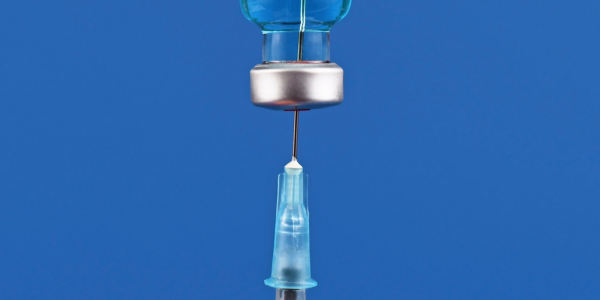
What Are the Symptoms of Low Testosterone?
What are the symptoms of low Testosterone? What causes Testosterone deficiency to occur? Does it affect both men and women?
These are just some of the questions you may be asking yourself. It is important to understand that you may experience some or all the symptoms of low Testosterone depending on your individual experience.
There are many potential causes of a hormone imbalance. To correct the problem, it is important to have a thorough understanding of what’s causing your symptoms and why. That allows your medical provider to directly address the issue, rather than simply treating the symptoms.
Effective treatment options are available. You don’t have to live with the effects of low Testosterone, and it doesn’t have to control your life.


The Symptoms of Low Testosterone
There are a collection of symptoms that are typically associated with a decline in Testosterone. Read on to learn more about each symptom and its potential cause.
Reduced Libido
Have you ever wondered why some people have a better sex drive than others?
Many people think that sexual desire is purely psychological, but in truth, physiology and Testosterone levels play an important role in determining a person’s libido.
If you’ve always had a strong sex drive and find that it is now waning, it could be because your body is no longer producing an adequate amount of Testosterone. Low Testosterone can also occur in men of any age for a variety of reasons – which means you may have always had low sex drive and never understood why.
Obviously, this is something that can have far reaching consequences in your personal relationships and overall self-confidence. Seeking proper treatment – including a Testosterone Replacement Therapy protocol if appropriate – can benefit both you and your spouse or partner.
Erectile Dysfunction
An estimated one in three men experience some degree of erectile dysfunction. Like other forms of sexual dysfunction, this condition can become worse over time. This is especially true when the cause of erectile dysfunction is low Testosterone.
Low T or hypogonadism, as a Testosterone deficiency is often called, can cause a marked decrease in sexual performance. That’s because Testosterone not only supports healthy arousal but also plays an important role in a man’s ability to have an erection.
It is more common for mature men to experience this symptom. However, it can happen to men as young as 30 years of age, and sometimes younger depending on environmental and genetic factors.
In addition to making it difficult to perform intimately, erectile dysfunction can also have an adverse impact on mental health as well as the health of your relationship.
Fatigue
Have you noticed that you just don’t have the energy you once had? Do you have things you really want to do, but you don’t have the energy to follow through with your plans?
You might think this is just a normal part of getting older. Maybe it feels natural or expected given the everyday stressors in your life.
In reality, though, the chronic low energy you are feeling may be the result of hypogonadism or low Testosterone. If you continue to feel tired regardless of the amount of sleep you get or your efforts to mitigate stressors, it may be time to consider or rule out that your fatigue is due to inadequate Testosterone.
Low Testosterone levels can result in reduced drive, decreased motivation, and issues with sleep quality. These symptoms contribute to mental and physical fatigue.
Weight Gain
Most people have a highly functioning metabolism when they are young. As they get older, the metabolism typically begins to slow down. This usually results in weight gain, even when diet and exercise remain the same.
Because Testosterone plays an important role in body composition, age-related hormone deficiencies can contribute to fat gain, particularly in hard-to-lose areas like the abdomen.
This symptom combined with a harder time building muscle (discussed in the next section) can lead to drastic changes in body composition.
Loss of Lean Muscle
Testosterone is one of the most important hormones in the body when it comes to effectively managing energy levels and body composition.
When Testosterone levels begin to decrease, you’ll likely notice a difference in your ability to build lean muscle, particularly if you work out frequently. If you are maintaining a strict diet and hitting the gym on a regular basis without seeing the results you’re accustomed to seeing, it may be time to see a doctor about a Testosterone deficiency.
Sarcopenia is the official term used to describe the increase in body fat and concurrent loss of muscle and bone tissue that results from a decline of anabolic hormones including Testosterone.
Depression
In addition to helping regulate energy, body weight, muscle mass, and sexual desire, Testosterone also affects your mood. When your Testosterone levels are low, you may start feeling depressed.
While it is normal for everyone to feel sad sometimes, depression is a different story. If you notice that you feel sad often, a hormonal imbalance could be the reason. It is even more likely to be the case if you are experiencing depression alongside other symptoms such as decreased libido, weight gain, and fatigue. Learn more about how Testosterone Replacement Therapy can alleviate depression symptoms.
Problems Concentrating
Most people struggle with focus from time to time, and intense concentration may come more naturally for some than for others. The key is whether or not you notice a difference in the level of concentration you have experienced in the past.
If you suddenly notice that you just can’t focus the way you used to, it could be because your hormones are no longer balanced.
Osteoporosis
While osteoporosis has many causes separate from Testosterone deficiency, a lack of this important hormone can have an impact on bone health. Hypogonadism can affect Bone Mineral Density (BMD) and increase the risk of bone fractures.
If you’ve been diagnosed with osteoporosis and experience some or all of the other symptoms of low Testosterone mentioned in this article, you may be experiencing low Testosterone that is causing increased bone frailty.
General Lack of Interest
This is similar to depression but not exactly the same. In this case, you may feel less interested in the things you used to enjoy. Your indifference can even apply to things in which you once found a great deal of joy. In general, you just feel less interest and less of a zest for life.
Without the right balance of hormones in your body, your mood can become affected. You may begin to feel overwhelmed with day-to-day tasks. In addition, you could potentially lose your sense of joy for life in general.
Symptoms of Low Testosterone in Women
Many people assume a Testosterone deficiency can only affect men. While this is a common problem for men, it can and does impact to women, too.
While women typically have less of this hormone than men, it still plays a vital role in both physical and mental health. Women may even experience some of the same symptoms as their male counterparts.
These symptoms include a decreased sex drive as well as less sexual satisfaction. They are also likely to experience abdominal weight gain, decreased muscle tone, and fatigue. Like men, they may display a general lack of interest or have problems focusing on routine tasks, as well.
Women may also fall into depression. At times, this depression can become severe. It is possible for women to experience a loss of strength and endurance, as well, making it difficult for them to complete daily routines they once found easy.
Causes of Low Testosterone
There are many potential causes for a hormonal imbalance. To better understand the cause behind your current health issues, it is important to examine and catalogue each of these factors.
Age
Aging affects everyone to some extent, though at different times and in different ways. Almost everyone notices differences in their body as they get older.
One of the main symptoms of aging is a decreased production of essential hormones like Testosterone. As previously mentioned, this is something that can happen to relatively young individuals, even those in their thirties.
Traumatic Injury or Illness
It may be somewhat hard to believe that an injury can cause a hormone imbalance. Granted, most injuries don’t directly cause this type of complication, at least not in the long-term. However, a traumatic injury to a man’s testes can have a direct impact on Testosterone production.
The same thing is true for women who have suffered a traumatic injury or illness that necessitated the need for a hysterectomy. Although the process is different, the result is the same in both cases.
Hormone production is affected, and the body is often left struggling to regain balance.
Metabolic Disorder
There are several types of metabolic disorders, just like there are many autoimmune disorders. The one that most often causes problems in this arena is known as hemochromatosis. It refers to a condition where there is too much iron in the blood. This in turn can suppress certain hormones, resulting in symptoms of low Testosterone.
Type-2 Diabetes and Testosterone
Men with Type-2 Diabetes have been shown to be twice as likely to experience hypogonadism, or low Testosterone, than men without this chronic condition.
Men with Diabetes may experience erectile dysfunction, decreased sex drive, increase in body fat, and other symptoms related to low Testosterone. For this reason, Testosterone Replacement Therapy can help manage Type-2 Diabetes and ease symptoms that stem from hypogonadism.
Obesity
Because of the changes that occur in the body, obesity can cause Male Obesity Secondary Hypogonadism (MOSH). This type of Testosterone deficiency leads to the same symptoms as other forms of hypogonadism, including erectile dysfunction, fat gain, fatigue, and others.
MOSH can have a compounded effect on obesity, because it can lead to difficulty in building muscle and losing weight. For patients who experience MOSH, Testosterone Replacement Therapy can have the dual benefit of easing hypogonadal symptoms while also assisting with weight loss and weight management.
Sarcopenic obesity is the medical term used to describe the condition of having loss of muscle tissue and high body fat. Patients in this category may have a low BMI and appear to be normal weight; however they can experience similar negative outcomes as obesity but with additional health issues unique to sarcopenia.
Symptoms of sarcopenic obesity include inflammation, insulin resistance, hypopituitary disorder (low hormone levels), unintended weight loss (muscle), and chronic muscle pain and weakness.
Illicit Drug Use, Alcohol, and Prescriptions Drugs
Many common drugs have potential low Testosterone side effects. These can include illicit drugs like opioids, anabolic steroid abuse, cocaine, and methamphetamines. Excessive alcohol consumption can also influence Testosterone levels.
Prescription drugs like antihistamines, certain cholesterol medications that include statins, and antidepressants or other mood-related drugs can potentially impact Testosterone levels, as well. There is a significant amount of data supporting the negative effect of these chemicals on hormone and reproductive health.
If you have a prescription for one of the medically necessary drugs listed above, it’s important not to stop your prescription regimen. These medications can be crucial in managing bodily functions, mood, and more.
However, if you are on one or more of these prescriptions and experiencing low Testosterone symptoms, it’s worthwhile to check Testosterone levels and talk to a doctor about Testosterone Replacement Therapy.
Chronic Stress and Sleeplessness
Medical professionals are just beginning to understand how stress impacts virtually every part of the body and mind. In fact, there is still a great deal to be learned.
We know that high levels of ongoing stress can impact Testosterone production levels. When you’re stressed, it affects the endocrine system, which controls the production of hormones. The body will then release stress hormones like cortisol and adrenaline. These hormones ramp the body up into fight or flight mode.
If you only experience acute stress for a short period of time, this response isn’t too much of a problem. The issue is when stress is constant or near constant. Chronic stress can affect your body’s production of hormones like Testosterone in the long-term. It may also increase the risk of a number of chronic illnesses ranging from heart disease to cancer. Therefore, it is crucial to learn how to manage stress successfully. Learn more about managing your stress levels.
Stress can also lead to sleeplessness (and vice versa) – and there is a demonstrated link between lack of sleep and low Testosterone levels. Not sleeping can cause many health problems in addition to low Testosterone, and it’s important to address the problem with appropriate treatment.
Medical professionals are just beginning to understand how stress impacts virtually every part of the body and mind. In fact, there is still a great deal to be learned. What is currently known is that when the body is under stress, it produces hormones called adrenaline and cortisol. These hormones ramp the body up into fight or flight mode.
Cancer
There are essentially two different ways that cancer can cause a hormone imbalance.
The first method impacts the body directly. If you have a tumor on your pituitary gland, your hormones are highly likely to be out of balance. This is because the pituitary gland is responsible for secreting many of these hormones.
Also, the chemotherapy that is often prescribed to combat certain types of cancer can further affect the body’s biochemistry. That is why it is so important for cancer patients to undergo careful monitoring of hormone production.
Undescended Testicles
You have already learned that a traumatic injury involving the testes can cause a shift in hormone production that may benefit from TRT. The same is true when a testicle remains undescended.
Hormone therapy may be necessary to combat the physical and mental health effects of this condition.
Problems with the Adrenal Gland
The adrenal glands are responsible for producing many hormones that regulate the body’s processes. Issues with this production can lead to imbalances that affect Testosterone levels.
In addition, the adrenal glands actually secrete a small amount of Testosterone, as well, though the testes and ovaries play the largest part in Testosterone production.
Effective Treatment Options
One of the most effective treatments for Testosterone deficiency is Testosterone Replacement Therapy (TRT). TRT replenishes and optimizes Testosterone levels for symptom relief that addresses the root cause.
There are many different delivery systems available for TRT, including injections, topical creams and patches, implantable pellets, and more. Learn more about TRT options for men and women.
There are other potential alternatives to treating hypogonadism or low-T, depending on the situation.
For example, medications like Clomiphene and Enclomiphene have shown promise in treating hypogonadism and infertility by increasing the body’s production of Testosterone and sperm. Human Chorionic Gonadotropin, or HCG, is another potential option that can help treat infertility and low Testosterone.
These treatments can mimic the effects of Luteinizing Hormone, or LH, which controls the production of Testosterone. In turn, Testosterone controls the production of sperm.
TRT and other hypogonadism treatments tend to work best when combined with an integrated approach to wellness. This involves incorporating effective stress management techniques, holistic therapies, nutrition and supplementation, and more to create a healthier body and mind.

Defy Low Testosterone with Defy Medical
If you’ve been struggling with the symptoms described in this article, don’t wait and hope for things to get better. Take the first step in diagnosing a Testosterone deficiency by testing your hormone levels.
Defy Medical can help you access comprehensive blood testing at a laboratory near you that can identify and diagnose low Testosterone.
If your results show a deficiency, our providers specialize in hormone restoration via telemedicine and can create an individualized Testosterone Replacement Therapy protocol to help you feel better.
Get Started

